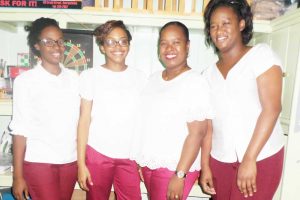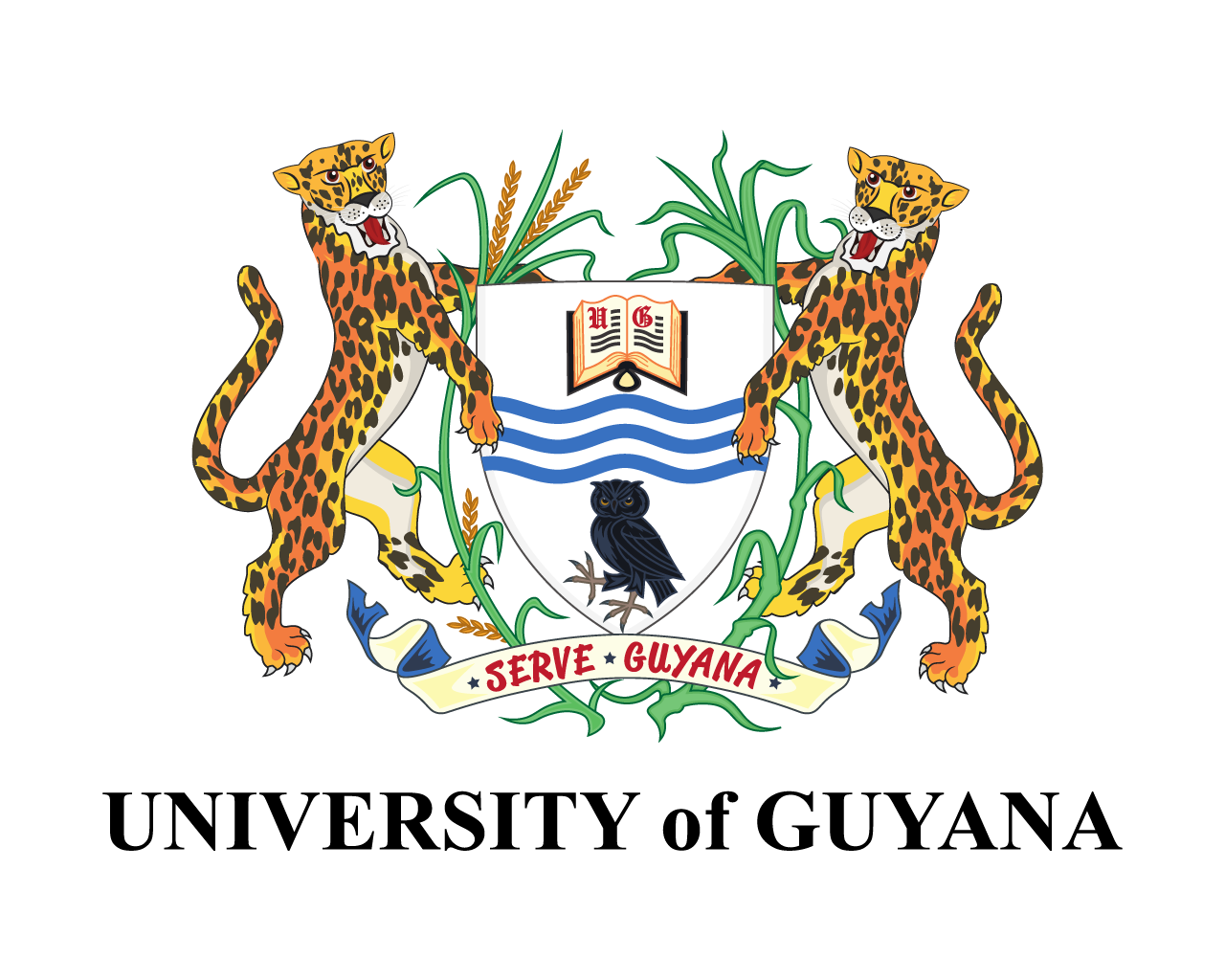
UG to graduate first batch of Speech and Language Therapy students next month -graduates to play key role in helping to address speech challenges in school system
Monday, November 12, 2018 - 07:42The University of Guyana [UG] is set to graduate its first batch of Speech and Language Therapists under its Medical Rehabilitation Programme next month.
This batch of therapists comprises of five females all of whom will be plugged into the public health sector to help advance its speech therapy agenda.
The inaugural Speech Therapy batch includes Lisa Sam, Gordonieka De Freitas, Sonia Fredericks, Kerianne Richards and Michelle Jackman. Four of the five students [Sam, Dr. Freitas, Fredericks and Richards] are currently gaining hands-on experience at the Ministry of Public Health’s Rehabilitation Services Department.
The Department situated in the compound of the Brickdam, Georgetown Palms Geriatric Home has been serving many people with various rehabilitation issues over the years. However, rehabilitation services are expected to be considerably augmented with the input of the quintet once graduated.
The Medical Rehabilitation Programme, which falls under the purview of the Faculty of Health Sciences, started a few years ago and offers students programmes in Physiotherapy, Audiology and Occupational Therapy programmes. However Speech and Language Therapy as the newest offered currently has a total of 12 students who commenced the programme at the start of this academic year.
Speaking of the Speech and Language Therapy programme, which she opted for four years ago, Richards emphasised its importance by pointing, for instance, how it can help correct the shortcomings associated with delayed speech.
“Parents, or mothers in particular, can notice if their child is not speaking at a particular age, especially if they have more than one child. They might recognise that their second child is not talking as early as the first child,” said Richards who disclosed that based on the knowledge she has gained the critical age for speech is at three.
This age can however be extended to five, since Richards noted some children are known to develop later than others.
“If after five years that child is not talking then we know that that child has a speech disorder because that child has not been able to accumulate any speech between the recommended period,” Richards shared.
But not only is the lack of speech is a cause for concern as, according to Richards too, articulation issues are also often a sign of this disorder.
“We articulation problems with a lot of nursery school children where they substitute one sound for another or they put it into different parts of the word,” said Richards who noted that while this can be a cause for concern in some cases it may only be a passing phase.
There, however, remains a dire need for schools to be more on board when it comes to the rehabilitation needs of school age children. This is in light of the fact that it has been discovered that some teachers within the school system are not au fait with the signs associated with issues such as speech delay.
Richards is aware of this since as a final year project she and her colleagues were tasked with conducting a study in 15 schools across Georgetown which targeted teachers. The project is one which sought to ascertain if teachers were knowledgeable about Speech and Language Therapy and Audiology.
But according to Richards many teachers, the majority of whom have been teachers for in excess of two decades were oblivious to these challenges.
The resulting recommendation is that there should be urgent collaboration between the Ministry of Education and the Ministry of Health to ensure that the shortcomings that can affect children’s learning ability be addressed.
Richards is confident that the existing dilemma will be further addressed by the Education Ministry’s move to incorporate Special Needs Education at the Cyril Potter College of Education. “Prior to this many teachers didn’t know what to look for in a child with speech delay or hearing problems or some mental problem…They didn’t know how to categorise problems like these but now the special needs programme being offered at CPCE, they will now know,” said Richards.
However, many teachers already in the system lack these capabilities hence the need for the collaboration with the Health Ministry through its Rehabilitation Department with the education system. But process isn’t only about detection.
“For the teachers in particular once they are eventually able to detect these problems they have to go through another process to notify the head teacher who then notifies the special needs people at NCERD who will then bring specialists to look at these children,” said Richards.
But the support from the knowledgeable soon to be graduated Speech and Language Therapists will shortly be realised since, according to Richards, “We will try to space ourselves out through the Regions working through the different Rehab Departments.”
The initial focus will be on Special Need Schools, and Richards said that “once speech problems are detected we will be tasked with setting up treatment plans and hope that they are followed through by the teachers and parents who will be notified as well.”
Speech therapy treatment entails articulation, Richards explained. “If children are adding or omitting different sounds from words or replacing them with others we have to look at that and that is called phonology.”
“Depends on what they do…we say fronting or backing if they are putting a different sound at the front or the back of the word like replacing letter T for letter K…we may have children who stutter and we help to address that too,” said Richards.
However, the Speech and Language Therapists will not work in isolation but with officials already attached to the Health Ministry’s regional Rehab Departments.
She noted that while there is hope for some children with speech challenges, “We will not be giving false hope to parents who believe that treatment can help them to acquire speech because the reality is that some of them never will.”
